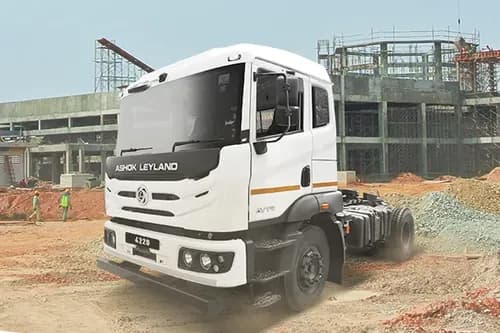Ad
Ad
Ad
Union Budget 2023-24 for The Agriculture Sector - Highlights, Previous Budgets, Key Takeaways
On 1st February 2023, the Finance Minister of India, Nirmala Sitharaman, was scheduled to present the Union Budget for the fiscal year 2023-24. As per the budget announcement, the National Bank for Agriculture and Rural Development (NABARD) will provide funding for start-ups that operate in the agricultural and rural sectors.

Furthermore, farmers will benefit significantly from the usage of Kisan Drones, which will help with crop assessments, spraying of insecticides, and digitization of land records. The implementation of Kisan Drones will make agricultural practices more efficient and effective, leading to better crop yields and increased profits for farmers.
In addition, wheat and paddy farmers are set to receive direct payments worth Rs.2.37 lakh crore for minimum support price (MSP). This support will help farmers cover their expenses and ensure a fair price for their produce, thereby protecting their livelihoods.
Overall, the Union Budget for 2023-24 aims to provide greater support to the agricultural sector, which is a crucial component of the Indian economy, and help farmers to improve their livelihoods and income.
Key Points of Union Budget 2023-24 in the Agriculture Sector
The Union Budget for the fiscal year 2023-24 includes several key initiatives aimed at promoting growth and development in the agricultural sector. The following are the highlights of the Union Budget's focus on agriculture:
-
Agriculture Accelerator Fund: To support young entrepreneurs in agriculture, the government will launch an Agriculture Accelerator Fund. This fund will help to finance innovative agri-startups that can contribute to the sector's growth and development.
-
Increased Agricultural Credit: The agricultural credit limit will be raised to Rs. 20 trillion, with a focus on dairy, fisheries, and animal husbandry. This initiative will help to increase farmers' access to finance and enable them to expand their operations.
-
PM Matsya Sampada Yojana Sub-scheme: The government will introduce a new sub-scheme of the PM Matsya Sampada Yojana with an investment of Rs. 6,000 crores. This initiative aims to enable fish vendors, fishermen, and micro- and small businesses by improving the value chain's efficiency and expanding the market.
-
Promotion of Natural Farming: The government aims to empower 10 million farmers to switch to natural farming, promoting sustainable and eco-friendly agriculture practices.
-
Decentralized Storage Capacity: The government plans to set up a significant decentralized storage capacity to help farmers store their produce and obtain fair prices through timely sales.
-
Digital Public Infrastructure for Agriculture: A Digital Public Infrastructure for Agriculture will be created as an open-source, open-standard, and interconnected platform. This initiative will provide inclusive solutions for farmers and increase access to farm inputs, market intelligence, and support for agri-startups.
-
Promotion of Alternative Fertilizers: To encourage states and Union Territories to use alternative fertilizers, the government will introduce PM PRANAM.
-
Computerisation of Primary Agricultural Credit Societies: A significant investment of Rs. 2,516 crores will be made to computerize 63,000 Primary Agricultural Credit Societies (PACS). This initiative aims to provide better access to credit for farmers and improve the efficiency of credit delivery.
-
Support for Indian Institute of Millet Research: The Indian Institute of Millet Research in Hyderabad will be supported as the Center of Excellence for Sharing Best Practices, Research, and Technologies at the International Level. This initiative aims to make India a global hub for millet farming and promote sustainable and eco-friendly agriculture practices.

Key Points of Union Budget 2022-23 in the Agriculture Sector
The Union Budget for the fiscal year 2022-23 has several highlights that focus on the agricultural sector. These initiatives are aimed at promoting growth, development, and sustainability in the agriculture sector. The following are the highlights of the Union Budget's focus on agriculture:
-
Support for Agriculture and Rural Startups: The National Bank for Agriculture and Rural Development (NABARD) will provide funds to support agriculture and rural startups. This initiative aims to promote innovation and entrepreneurship in the sector.
-
Direct Payments for Minimum Support Price: The government will ensure that wheat and paddy farmers receive assured income by making direct payments of Rs. 2.37 lakh crore for minimum support price (MSP) from April 2022 to March 2023. This initiative aims to provide financial security to farmers and prevent distress sales.
-
Expansion of Oilseed Cultivation and Production of Millet: The government aims to reduce dependency on imports by expanding oilseed cultivation and encouraging the production of millet. These initiatives aim to promote sustainable and eco-friendly agricultural practices.
-
Usage of Kisan Drones: Kisan drones will be employed for crop assessments, digitalisation of land records, spraying of pesticides, and nutrients. This initiative aims to improve agricultural productivity and reduce the use of harmful chemicals.
-
Promotion of Chemical-free Natural Farming: The government aims to promote chemical-free natural farming all over India. This initiative will help farmers improve their income and promote sustainable agricultural practices.
-
Ken-Betwa River Linking Project: About 9 lakh farmers will benefit from the Ken-Betwa River linking project, and a total of Rs.44,000 crore has been earmarked for this project. This initiative aims to provide irrigation facilities and improve the agricultural productivity of the region.
-
Allocation for the Ministry of Agriculture and Farmers' Welfare: In the 2020-21 Union Budget presented by Finance Minister Nirmala Sitharaman, the Ministry of Agriculture and Farmers' Welfare has been allocated Rs.1,31,531 crore. This allocation indicates the government's commitment to promoting the welfare of farmers and rural India.
In conclusion, the Union Budget for the fiscal year 2022-23 has several initiatives aimed at promoting growth, development, and sustainability in the agricultural sector. These initiatives aim to provide financial security to farmers, promote sustainable agricultural practices, and improve the overall agricultural productivity of the country.
Key Points of Union Budget 2020-21 in the Agriculture Sector
On 1 February 2021, the finance minister announced the highlights of Union Budget 2020-21 pertaining to the agriculture sector. These highlights are discussed in detail below:
-
Agricultural Credit: The target for agricultural credit has been increased to Rs.16.5 lakh crores from the earlier Rs.15 lakh crores to ensure the availability of higher credit to farmers and for sectors like animal husbandry, dairy, and fisheries.
-
Rural Infrastructure Development Fund: The allocation towards the rural infrastructure development fund is proposed to be increased to Rs.40,000 crores by 2021-22. This will provide better infrastructure in rural areas, which will improve the transportation and storage facilities for agricultural products.
-
Micro Irrigation Fund: The corpus of the Micro Irrigation Fund has been increased to Rs.10,000 crores via NABARD. This will aid in the water conservation commitment and help farmers to adopt micro-irrigation techniques that can lead to better water management and efficient use of water resources.
-
SWAMITVA Scheme: The SWAMITVA scheme, which aims to provide property cards to rural landowners, will be extended to all states and union territories. This will bring transparency and clarity in land records, and help in enabling farmers to access credit and insurance services.
-
Operation Green Scheme: Two perishable products will be included under the 'Operation Green Scheme', which will strengthen the production clusters of these crops. This scheme will ensure that farmers get the right price for their produce and will lead to the reduction of wastage.
-
e-NAM Integration: A thousand more mandis will be integrated with e-NAM to help boost transparency in the Agri markets. This will provide a national market to farmers and help them to get a better price for their produce.
-
Multi-Purpose Seaweed Park: A multi-purpose seaweed park will be set up in Tamil Nadu to help leverage the country's vast ocean resources and R&D capabilities. This will encourage seaweed farming, which is an untapped sector in India, and help in the production of products such as nutraceuticals, medicines, and cosmetics.
Key Points of Union Budget 2019 in the Agriculture Sector
The Union Budget of 2019-20 has given great importance to the agriculture sector of the country by introducing several initiatives and increasing the budget allocation. The highlights of the Union Budget 2019-20 in the agriculture sector are as follows:
-
Allocation of funds: A significant allocation of Rs.1,30,485 crore has been made to the Ministry of Agriculture for the year 2019-20. Also, a budgetary estimate of Rs.57,600 crore has been provided, which is 140% higher than FY2018-19.
-
Fertiliser subsidy: A budgetary allocation of Rs.79,996 crore has been made for fertiliser subsidy for the year 2019-20.
-
Pradhan Mantri Kisan Samman Nidhi (PM-Kisan): The budget has provided an allocation of Rs.75,000 crore to PM-Kisan, which is a scheme to provide financial assistance to small and marginal farmers. This has resulted in an increase in the budget allocation to the agriculture ministry, but it is still Rs.10,000 crore lesser than the estimate in the interim budget.
-
Zero budget farming: The Union Budget 2019-20 is focused on promoting innovative pilots of 'zero budget farming' across India to bring down fertiliser dependency. This initiative will help farmers to reduce their input costs and make farming more sustainable.
-
Pradhan Mantri Matsya Sampada Yojana (PMMSY): An allocation of Rs.3,737 crore has been made to the Ministry of Fisheries, Animal Husbandry and Dairying. Out of which, Rs.805 crore has been allocated to PMMSY, which aims to address important gaps in the value chain, including production, modernisation, quality control, traceability, infrastructure, post-harvest management, and productivity.
-
Pradhan Mantri Krishi Sinchai Yojana (PMKSY): The allocation to PMKSY remains Rs.3,500 crore as proposed in the interim budget. The initiative focuses on creating 10,000 new farm producer organizations (FPOs) in the next 5 years to improve economies of scale.
-
Technology business incubators (TBIs) and livelihood business incubators (LBIs): The Union Budget FY2019-20 is focused on setting up 20 TBIs and 80 LBIs to develop 75,000 skilled entrepreneurs in the agro-rural industry sector. These initiatives will create new job opportunities and help in the development of the rural economy.
Overall, the Union Budget of 2019-20 has focused on improving the livelihoods of farmers and creating a sustainable agriculture sector in India. The increased budget allocation and introduction of several new initiatives will help in achieving these goals.
Features & Articles
How Proper Load Balancing Can Improve Your Truck’s Tyre Life
Here's why Proper Load Balancing is important for your truck and its tyres....
16-Dec-24 01:30 PM
Read Full NewsTruck Engine Overheating: Causes, Symptoms, and Solutions
Engine overheating is a serious issue that can lead to costly repairs and long-term damage to your truck if not addressed quickly. ...
11-Dec-24 12:17 PM
Read Full NewsTop 3 Truck Brands in India to Choose This New Year 2025!
Here are the top 3 truck brands in India to choose this New Year 2025!...
10-Dec-24 12:45 PM
Read Full NewsEicher Pro 8035XM AMT: Specifications, Technology, and Applications
In this article, we will explore the specifications, technology and applications of Eicher Pro 8035XM AMT tipper....
07-Dec-24 10:20 AM
Read Full NewsTop 5 Features of Tata Trucks in India
In this article, we'll explore the top 5 features of Tata Trucks in India that make them stand out in the competitive Indian commercial vehicle market....
06-Dec-24 12:33 PM
Read Full Newsbauma CONEXPO INDIA 2024: Shaping the Future of India’s Infrastructure
bauma CONEXPO INDIA 2024 showcases cutting-edge innovations and global collaborations, driving India’s infrastructure growth towards a prosperous future....
06-Dec-24 10:31 AM
Read Full NewsAd
Ad
Registered Office Address
Delente Technologies Pvt. Ltd.
M3M Cosmopolitan, 12th Cosmopolitan,
Golf Course Ext Rd, Sector 66, Gurugram, Haryana
pincode - 122002
Join CMV360
Receive pricing updates, buying tips & more!
Follow Us
COMMERCIAL VEHICLE BUYING BECOMES EASY AT CMV360
CMV360 - is a leading commercial vehicle marketplace. We helps consumers to Buy, Finance, Insure and Service their commercial vehicles.
We bring great transparency on pricing, information and comparison of tractors, trucks, buses and three wheelers.

























